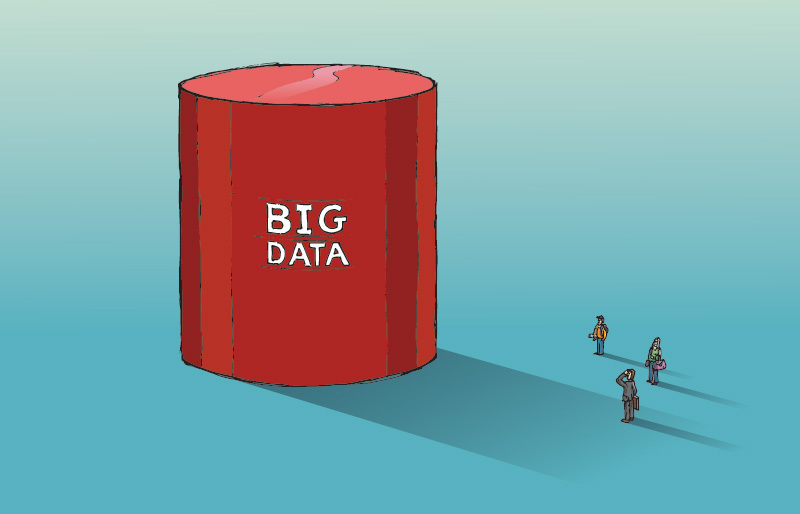Big data, big hype. Everyone in business seems to be talking about big data. Many have sat through bombastic and long-winded PowerPoint presentations about it, but relatively few seem to know how to use it effectively.
Despite big data’s patchy track record, IT directors and marketing directors face growing corporate peer pressure to invest in it.
Some IT directors are dabbling with big data because they want to have it on their CV – ‘I’ve put 2 million records into a Hadoop database’ – not because they think it’ll help their business. Marketing is also being dragged along somewhat unwillingly because the cost and benefits of many big data projects are often vague.
Sales directors tell us that they don’t care about big data because existing data warehouse and reporting structures can’t give them the data they need – daily or real-time information on sales and stock levels.
>See also: Is big data dead? The rise of smart data
So, why is big data falling so far short from its hype? And how can companies get better value from their data?
Too many big data projects start by searching for the right technology, then dumping a mass of data into it and trying to work out how it can help the business. That’s the wrong way round. It’s like buying land in a distant country without getting it surveyed first and then trying to work out what to do with the land.
Some retailers are trying to track customers moving round their stores via their mobile phones and RFID tags. They’re putting ‘beacons’ on products and shelves, and using their RFID tags to pick up a mobile phone signal. Consequently, one of the excuses for failure of RFID projects was that they were swamped by the data.
But this is a poor excuse. These projects are still failing even though retailers have numerous big data tools to choose from that purport to be perfectly capable of handling the data volumes. The problem lies in assigning meaning to data. It’s both an intellectual and a technical problem.
Skills shortage
In a recent report on Hadoop, one of the biggest suppliers of big data tools, Gartner said future demand for the product would probably be ‘fairly anaemic’ over the next two years. The research company said this was partly due to a shortage of people who know how to use Hadoop and sluggish adoption by business.
The human factor can also complicate big data. Analysing text in CRM and social media can be difficult because it involves interpreting customer opinions and deciding whether they are positive or negative about a brand. Computers don’t do irony.
>See also: Is your organisation throwing big data down the drain?
So, how can companies get bigger benefits from their data analysis? Here are five tips.
1. The business has to say what it wants to achieve from collating and analysing data
It should lead the project; not IT whose staff can feel threatened by big data.
2. Don’t ask questions that can’t be answered by the data
Retailers may want to know how many repeat visits customers make. But if, say, 40% of their sales are cash sales, rather than those made on debit or credit cards, that’s a big gap in sales data. Some retailers will struggle to identify individual customers in stores or customers with different cards.
3. Start small and then get bigger
Cut irrelevant data. If you’re trying to understand all customers, do you need demographic data on them? It may not be accurate. Do you need your trial to use data on all customers or just use data from five or six stores? Bear in mind that Tesco trialled its loyalty card in a handful of stores. When the value of the data was clear, it rolled out the system across its business.
4. Manage your costs
Pick suppliers who allow you to trial technology and will help you understand the technology.
5. Understand what data really matters to your business
For retailers, the most common objective is to sell more products, at a better price, more often.
>See also: Beneath big data: building the unbreakable
Another common goal will be a more efficient supply chain. Be specific. The aim may be, for example, to use your data to work out how to get stock on your shelves faster – or get more short-sleeved shirts on shelves rather than scarves on a hot day.
Having a clear business outcome makes it easier to measure the value of your data project. Yes, much of these tips are common sense, but in the rush to use big data companies are being dazzled by technology and forgetting that it should serve the business. Not the other way round.
Sourced from Laurence Armiger, Zizo







